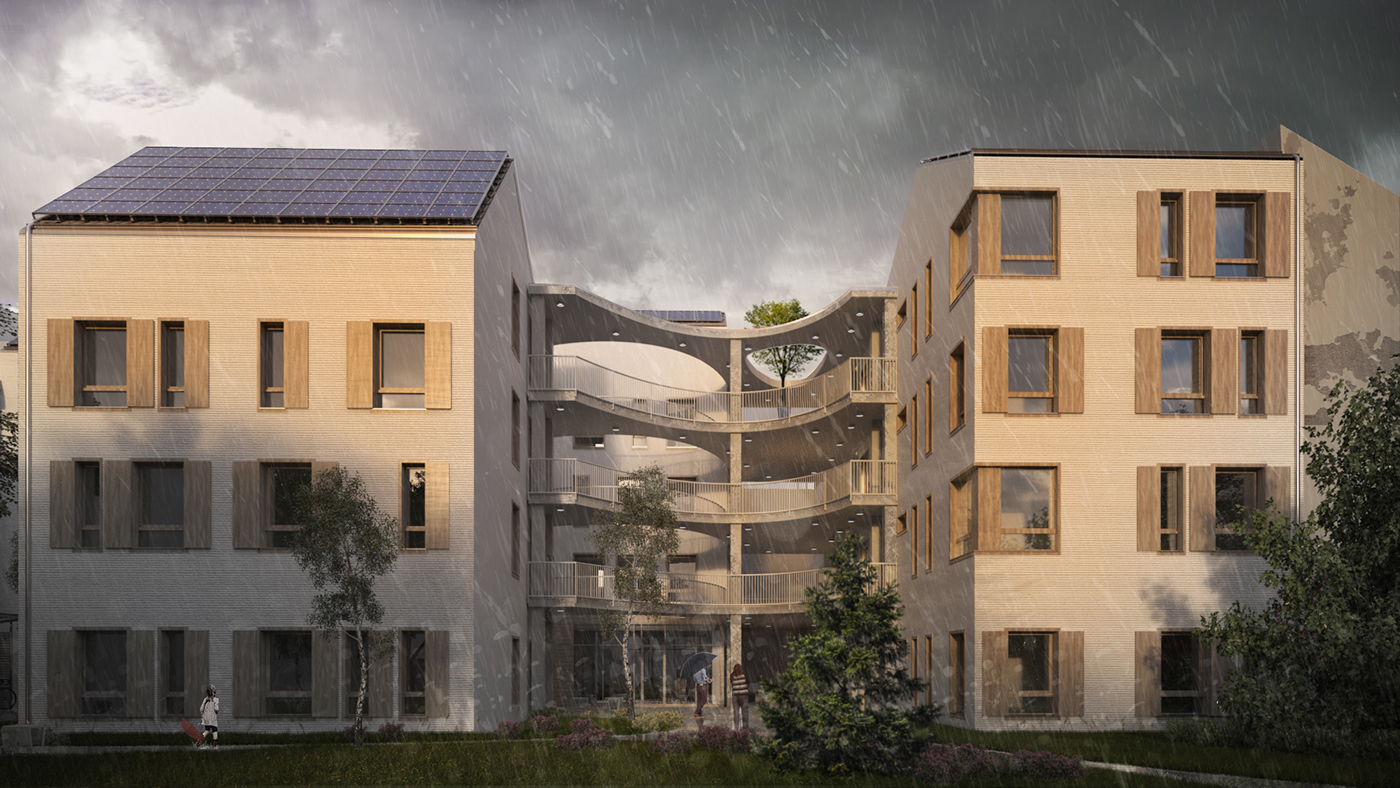The E-Co-Housing project in Budapest’s Zugló district is a pioneering initiative aimed at providing sustainable and high-quality social housing while fostering a sense of community among residents. Funded by the Urban Innovative Actions program, the project refurbished a previously uninhabited and aging building into a modern, energy-efficient structure with 14 apartments. This development prioritizes environmental sustainability, featuring state-of-the-art energy systems such as heat pumps, solar panels, and rainwater harvesting for garden irrigation. The project integrates principles of regenerative housing and circular economy, using non-polluting materials and smart technologies to ensure minimal environmental impact. Beyond its technical innovations, E-Co-Housing emphasizes social cohesion. A key aspect involves mentoring programs to prepare residents for community living, encouraging mutual support, and eco-friendly practices. The housing complex accommodates diverse residents, including single parents, elderly couples, and large families. Its co-designed approach tailors facilities to actual needs, such as providing naturally lit common spaces instead of unnecessary shared kitchens. The project aligns affordability with sustainability, using prefabrication techniques to reduce costs and construction time. Despite its success, scaling the initiative faces financial and political challenges. Limited municipal funding and a lack of national support hinder broader application. Nonetheless, E-Co-Housing stands as a rare example in Hungary of integrating sustainability and social housing, demonstrating the potential for innovative, community-focused housing solutions in urban environments.
City
Country
Summary
